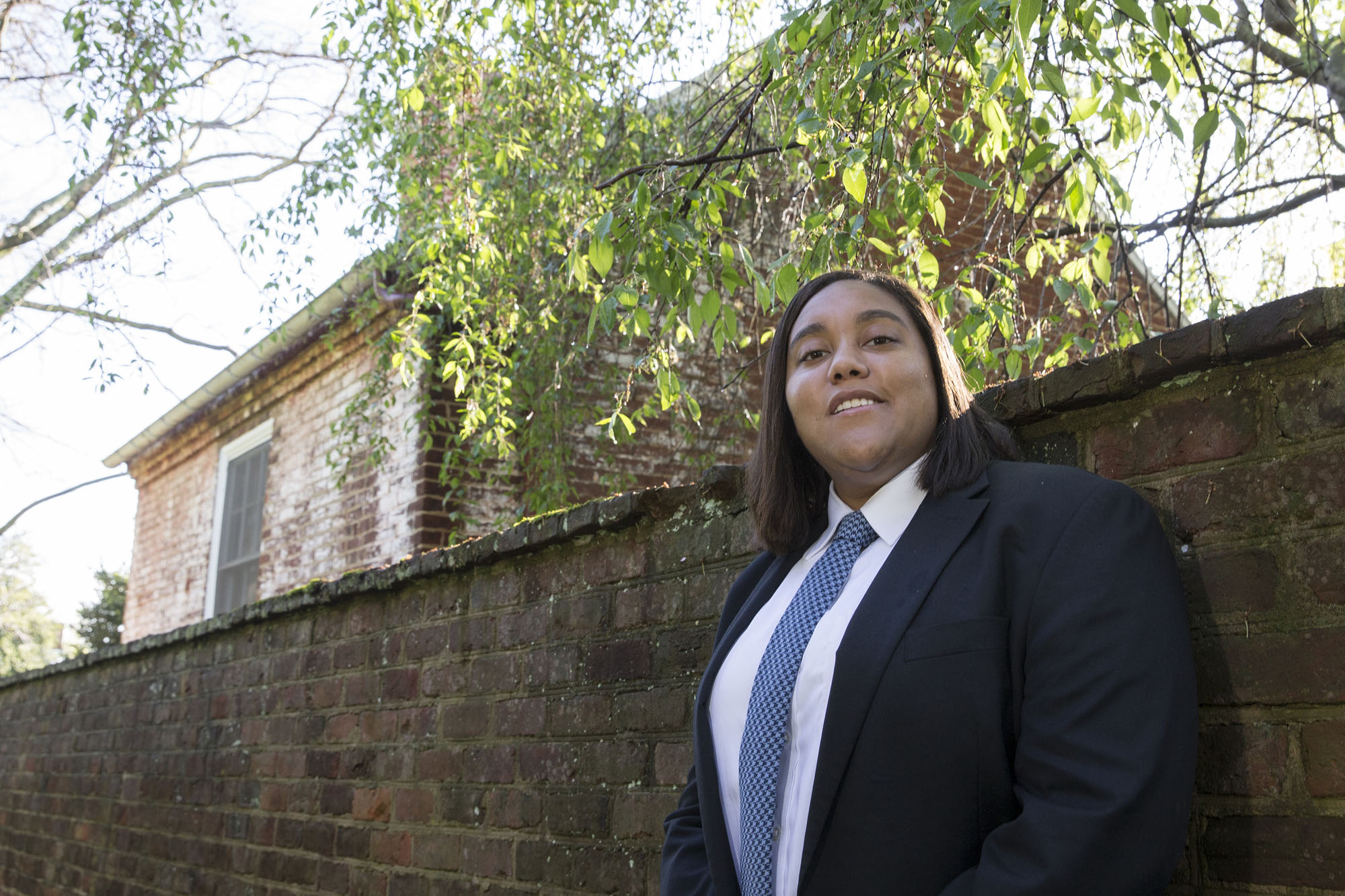A University of Virginia student will use a Kenan Fellowship to examine the interaction of students, faculty and slaves in U.Va.’s Academical Village from 1825 to Reconstruction.
Brittany (Britt) E. Brown, of The Bronx, New York, a third-year history major, received a 2015-16 fellowship from the William R. Kenan Endowment Fund of the Academical Village, created to finance programs that further the educational mission of Jefferson’s Academical Village. Brown will receive $4,000, with an additional $1,000 to go to her faculty adviser.
Brown’s research is focused on the hotels, specifically comparing Hotel C to the others. In the Academical Village – the original University designed by Thomas Jefferson – both of the outer rows of buildings, called “ranges,” includes student rooms and three hotels, which originally had separate “innkeepers” who fed and furnished students living in the adjacent rooms. Now the hotels function as office and meeting space for the University community.
“It will analyze how the hotel spaces influenced the community and how the spaces have transformed through the given time period,” Brown said. “Examining and understanding the influence of the hotels at the start of the University is not only gravely important due to the rich history and tradition that surround them, but also to give a greater public understanding of the space in the Academical Village that is still utilized today.”
Brown is a Meriwether Lewis Fellow, a member of Black Oasis for Learning and Development, the Community Honor Fund, Open Athletes and the Jefferson Literary and Debating Society, which meets in Hotel C, a focus of her research.
“Part of this fascination stems from my involvement in the Jefferson Society in present time, watching how my peers interact with each other and how other organizations use the space,” she said. “I am interested in understanding how Hotel C was used in the past, specifically in relation to the other hotel spaces. This includes recreating what those spaces looked like rhetorically and virtually; the significance of slaves living and working in and around those spaces; the faculty, students or administrators responsible for those spaces in the past; and all events occurring in those spaces that shaped the University community in some way.”
Brown said she applied for the Kenan because of her involvement with the Jefferson's University – Early Life Project, a research project that studies the University from its founding in 1819 through the end of the Civil War.
That’s where Brown first met Worthy Martin, an associate professor of computer science in the School of Engineering and Applied Science and a co-founder of the research project with Maurie McInnis, vice provost for academic affairs in the Office of the Executive Vice President and Provost, and Kirt Von Daake, associate professor of history and assistant dean in the College of Arts & Sciences. Von Daake also co-chairs the President’s Commission on Slavery and the University.
“Brittany has distinguished herself among this large group of students with her engagement in the investigations,” Martin said. “She picked up the technical skills required for the direct tasks she has been assigned and has made good progress. We have encouraged the students to consider a theme of their own to research in addition to assigned tasks. Brittany jumped on the opportunity and selected Hotel C as the locus of her research.”
Brown is on track to receive a master’s degree in public policy from the Frank Batten School for Leadership and Public Policy in 2017. She then plans to seek a doctorate in history.
“The Kenan Fellowship is a large breakthrough in my historical research career as I consider getting a Ph.D. in history in the near future,” she said. “I am very grateful that I get to research a topic that I deeply care about and will provide a stronger understanding of the University.”
Media Contact
Article Information
April 24, 2015
/content/academical-village-research-focus-hotel-c

